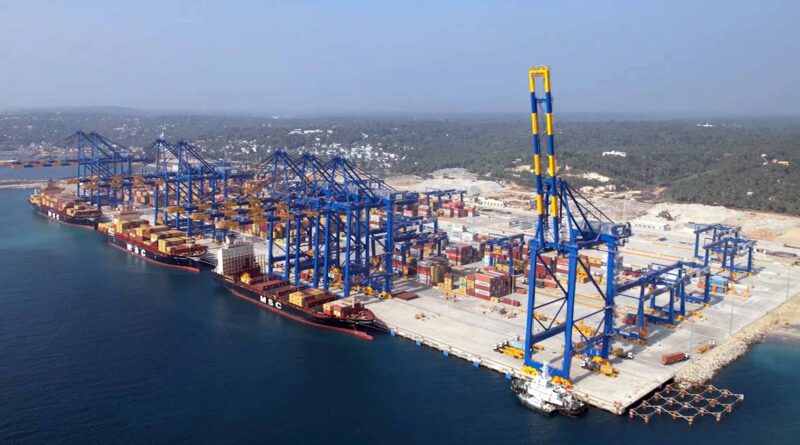India’s Maritime Supremacy: Vizhinjam Port Dedication
The Vizhinjam International Seaport in Kerala was dedicated to the nation in May 2025, marking a monumental chapter in India’s maritime journey. The port has already started rewriting the narrative of South Asia’s shipping economy, with over 380 vessels, including Container Mother Ships of global scale, welcomed since the commencement of trial operations in July 2024.
Strategic Strengths
The port’s significance lies in its geographic and natural advantages. Located just 10 nautical miles from the East-West and Far East – Middle East Asia International Shipping Routes, Vizhinjam enjoys a natural depth of up to 20 meters, making it the deepest port in India. This allows it to handle ultra-large container vessels (ULCVs) without continual dredging, ensuring lower maintenance costs and minimal environmental disruption.

India’s Maritime Future
Vizhinjam is expected to handle up to 1.5 million TEUs annually, with capacity projected to rise to 4.5 million TEUs after subsequent expansions. This reduces dependency on foreign ports, boosts revenue retention, and secures strategic autonomy. The port is a critical component of the PM Gati Shakti initiative and the India-Middle East-Europe Corridor (IMEC), aimed at enhancing logistics and global trade connectivity.
Key Highlights
- First-of-its-kind in India: Deepwater, Automated Container Transshipment Port with a natural depth of up to 20m.
- Rapid cargo capacity: Annual Capacity of 1.5 million TEUs/year initially, scalable to over 4.5 million TEUs.
- Cutting-edge tech: Equipped with 8 nos. of Semi-automated ship-to-shore Cranes, 24 nos. of fully automated Yard Cranes and VTMS indigenously developed in collaboration with IIT Madras.
- Job creation: Over 600 direct jobs and over 5,000 indirect jobs.

Global Recognition
The port has already handled the world’s largest container ship, MSC Irina, with a capacity of 24,346 TEUs. Major global liners like MSC have integrated Vizhinjam into their Jade and Dragon service routes, traditionally dominated by foreign ports.
Sustainability and Innovation
The Vizhinjam International Seaport integrates green practices such as automated logistics, minimal carbon emissions, and efficient waste management. Its sustainable infrastructure offers a model for future port development.

Future Expansion
The port plans to extend the container berth by 1,200 meters, develop a 1,220-meter multi-purpose berth, and enhance bunkering facilities, warehousing, and inland connectivity.
Building a Maritime Powerhouse
Vizhinjam is not merely a port – it is the cornerstone of India’s ambition to emerge as a dominant maritime nation. Its ability to accommodate ULCVs, reduce foreign dependence, secure strategic routes, and champion green infrastructure makes it an exemplar of India’s infrastructural renaissance.




